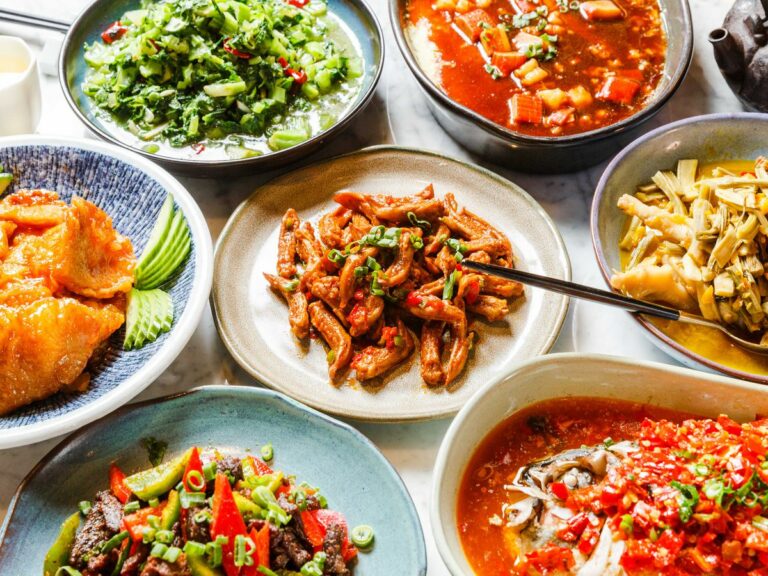Introduction: The Culture of Chinese Beverages
Beverages play an essential role in Chinese cuisine, as they complement dishes and have cultural significance. From tea ceremonies to baijiu to herbal drinks, Chinese beverages are unique in their flavors and preparation methods. In addition, many Chinese beverages have medicinal purposes, reflecting the country’s long-standing tradition of using food and drink as a form of medicine.
Tea: A Staple of Chinese Culture
Tea is an integral part of Chinese culture and is consumed daily in households and restaurants throughout the country. There are numerous types of tea, each with its unique flavor and health benefits. Green tea, oolong tea, and pu-erh tea are some of the most popular varieties. In addition to being enjoyed for their taste, tea ceremonies are also a form of social and cultural exchange in China.
Baijiu: The Strong Liquor of China
Baijiu is a potent liquor made from grains such as sorghum and rice. It is a staple at Chinese banquets and is often served during important ceremonies. Baijiu has a high alcohol content and a distinctive aroma that some describe as similar to paint thinner. Despite its strong flavor, baijiu is considered a symbol of hospitality in Chinese culture.
Huangjiu: The Fermented Rice Wine
Huangjiu, or yellow wine, is a traditional Chinese rice wine that has been produced for over 2,000 years. It is made by fermenting rice, water, and yeast, and is typically aged for several years before consumption. Huangjiu has a sweet, nutty flavor and is often used in cooking or served as a dessert wine.
Milk Tea: The Sweet Beverage of Hong Kong
Milk tea is a popular beverage in Hong Kong and is made by blending black tea with evaporated or condensed milk. The result is a sweet and creamy drink that is often served hot or cold. Milk tea is also a popular ingredient in desserts such as bubble tea and Taiwanese shaved ice.
Herbal Drinks: Traditional Chinese Medicine
Herbal drinks are a significant part of traditional Chinese medicine, which emphasizes the use of food and drink to promote health and balance in the body. Herbal drinks are made by steeping herbs and other natural ingredients in hot water. Some of the most popular herbal drinks in China include chrysanthemum tea, goji berry tea, and ginger tea.
Almond Milk: A Nutritious Alternative
Almond milk is a nutritious alternative to cow’s milk and is common in Chinese cuisine. It is made by blending almonds with water and straining the mixture to remove the solids. Almond milk has a creamy texture and is often used in desserts and baked goods.
Conclusion: Unique Beverages Abound in Chinese Cuisine
Chinese cuisine is known for its rich flavors, diverse ingredients, and unique preparation methods. Beverages are an essential component of Chinese cuisine and reflect the country’s rich cultural heritage and long-standing tradition of using food and drink as a form of medicine. From tea ceremonies to baijiu to herbal drinks, Chinese beverages offer a wealth of flavors and health benefits.

